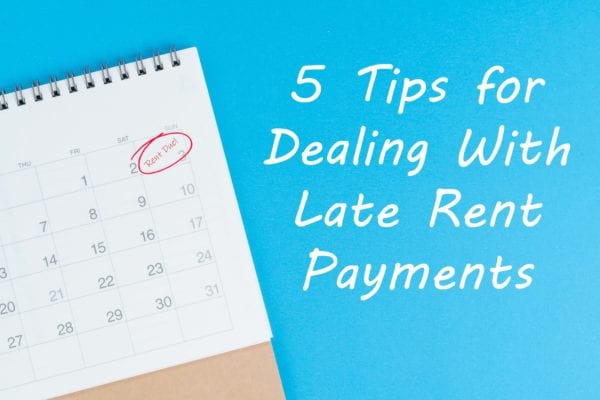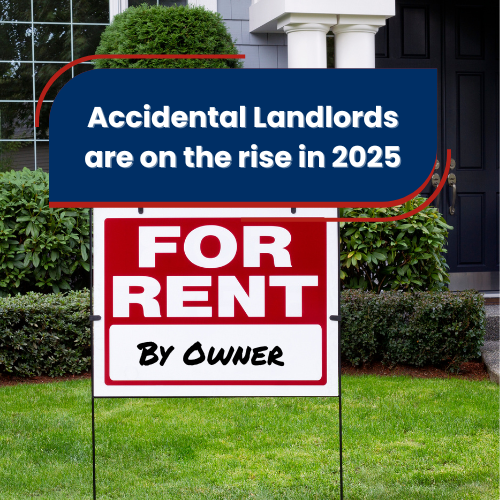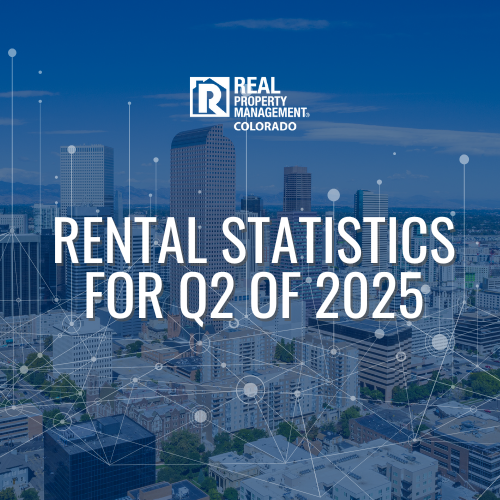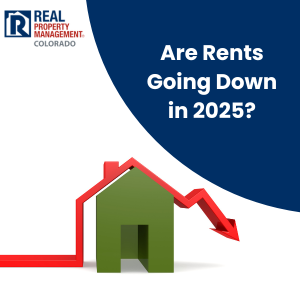Every landlord will deal with late rent payments at some point or another. It’s just a part of managing a rental home. Knowing how to handle these situations properly is crucial. Failing to deal with late or non-payment correctly not only creates a financial headache but can lead to a legal nightmare. So here are 5 tips for dealing with late rent payments when your Thornton residents don’t pay.

Avoiding Late Rent Payments Starts With Proper Tenant Screening.
Avoiding late rent payments begins well before your new tenants are even placed. Start by creating a set criteria for approval and stick to it for all applicants that apply. When those applications do start to trickle in, make sure to screen them properly. Check their income to ensure they make enough each month to cover the rent in the first place. Then complete a thorough credit, criminal, and rental history background check to search for any red flags. Believe it or not, but many DIY landlords skip this step entirely. This is a huge mistake and often leads to costly issues. Check their payment history, their credit scores, past-due debt, and their past rental history. If they were evicted in the past, previously served a judgment for possession, or still owe money to another landlord, they’re probably not a good fit.
Assess the Situation
Even the most thorough screening can’t account for various life changes or unexpected circumstances. In the event your Thornton resident doesn’t pay, be sure to reach out to them and assess the situation. Is this the first time they’ve missed a payment? Are there extenuating circumstances, such as a job loss or medical emergency? Depending on the cause, you may decide to work with them as a one-time courtesy, but you also don’t want late rent payments to become a habit.
Stick To Your Lease
The lease is the most important document of the landlord-tenant relationship. Make sure you properly address late rent payments and the consequences that come with failing to pay in your agreement. And when your residents do skip a payment, stick to the terms of your agreement. After hearing them out, you may decide to work with them. A one-time late payment isn’t necessarily a huge issue, but keep in mind that habitual late payers will have an excuse for every incident. When all else fails, follow your lease and the applicable local laws, including charging late fees, posting demands, and, if necessary, filing for an eviction.
Keep Proper Records
One challenge many DIY landlords have is keeping proper documentation and records of payment. Luckily, there are many ways to help offset this challenge by utilizing technology or hiring a property management company to do it all for you. Be sure to keep adequate records of when and how much your resident paid for each month. And if you do post any notices, keep a copy on file as well as document how your resident was notified. If you’re not able to hand-deliver it to them, take a picture of the posted notice on the front door with the address visible. All of these are crucial in the event legal action becomes necessary.
Act Quickly
Waiting or even failing to act when your resident pays late or doesn’t pay at all is a huge mistake. You want your residents to know you’re serious and that the consequences outlined in the lease agreement are real. Don’t wait for your residents to contact you about late rent payments. Act immediately by reaching out to them as soon as the rent is late and, after all other steps fail, filing for eviction when necessary. Failure to respond quickly and appropriately can cost you more as charges stack up over time. Remember that the eviction process takes time, too. It’s not as simple as posting a notice and waiting for your delinquent tenants to move out.

In a perfect world, every tenant pays on time and issues never arise. But the reality is that managing a rental home can be tricky and every landlord will deal with late rent payments at some point in time, be it a one-time occurrence or a habitual late payer. Make sure you know how to properly handle late rent payments.
And if you decide that hands-on management just isn’t your thing, Real Property Management Colorado can help! We specialize in residential property management and service single-family homes, townhomes, multiplexes, condos, and small apartment buildings along the Front Range, from the Denver Metro area to Colorado Springs and Northern Colorado. Give us a call at one of the numbers in the banner above or check us out online!





